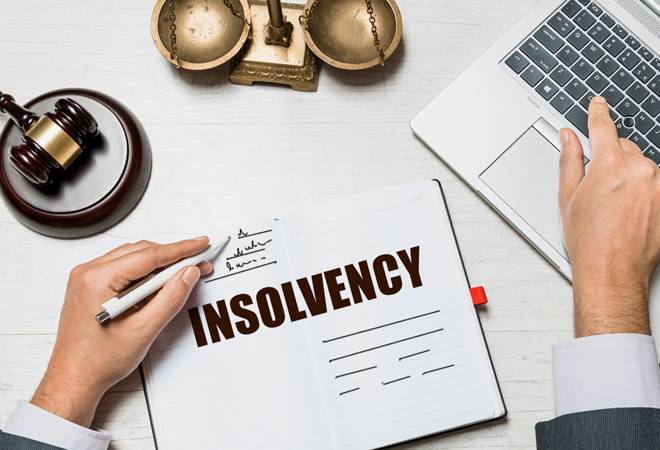Fascination About Insolvency Practitioner
Fascination About Insolvency Practitioner
Blog Article
The Definitive Guide for Insolvency Practitioner
Table of ContentsSome Known Details About Insolvency Practitioner The Ultimate Guide To Insolvency PractitionerThe Single Strategy To Use For Insolvency PractitionerWhat Does Insolvency Practitioner Do?Not known Details About Insolvency Practitioner The Facts About Insolvency Practitioner Uncovered6 Easy Facts About Insolvency Practitioner Shown
Insolvency is when liabilities are above the value of the company, or when a debtor can not pay the financial debts they owe. A business can end up being insolvent because of a number of scenarios that bring about poor capital. When encountered with insolvency, a company or individual can speak to creditors straight and restructure financial debts to pay them off.
Company owners might call creditors straight and restructure financial obligations right into more workable installments. Lenders are generally responsive to this strategy since they desire to be paid off and avoid losses, even if the payment is on a postponed schedule.
The owner creates a proposal describing exactly how the debt may be reorganized making use of cost reductions or various other strategies for assistance. The proposal shows financial institutions exactly how business might generate adequate cash money flow for lucrative procedures while paying its financial obligations. Commonly, a forgiven financial obligation might be considered income by the Internal Income Solution (IRS).
Indicators on Insolvency Practitioner You Should Know
When a business needs to pay boosted prices for items and services, the company passes along the cost to the customer. Rather than pay the raised cost, many consumers take their organization somewhere else so they can pay much less for a product and services. Shedding customers results in shedding income for paying the business's creditors.
When operations stop, so does the firm's income. Some companies end up being insolvent because their products or solutions do not develop to fit consumers' transforming demands.
4 Simple Techniques For Insolvency Practitioner
Expenses surpass incomes and costs stay overdue. Kinds of insolvency consist of cash-flow insolvency and balance-sheet insolvency. Cash-flow insolvency occurs when a business has the properties to cover their financial debts but they remain in the wrong form, such as real estate as opposed to liquid funds. Balance-sheet bankruptcy, on the other hand, suggests an absence of assets in any type to cover financial debts.
The IRS states that an individual is financially troubled when the total responsibilities exceed complete assets. Insolvency Practitioner. A bankruptcy, on the various other hand, is an actual court order that shows exactly how a financially troubled individual or service will repay their financial institutions, or Website just how they will certainly market their properties in order to make the payments
An Unbiased View of Insolvency Practitioner
When a company or person is financially troubled, they can not satisfy their financial obligations. Insolvency is not the same as personal bankruptcy, although a firm that has actually become insolvent may file for bankruptcy. Bankruptcy is the state of not being able to pay your responsibilities while bankruptcy is a lawful process to release your financial obligations.
Recognizing the elements that can lead to insolvency, such as overspending, can help you protect against bankruptcy and its effects.
3 Simple Techniques For Insolvency Practitioner
It is well understood that supervisors and police officers of corporations (and managers of limited responsibility business) owe fiduciary responsibilities to their companies and their investors (or participants). These fiduciary responsibilities are specified by state laws and, though there are variants from state to state, they usually consist of a task of loyalty and a responsibility of care.
The task of care calls for supervisors and police officers to exercise diligence, to make educated choices, and to act in excellent faith so that their activities remain in the most effective interest of the company. Though past the scope of this discussion, some states allow these obligations to be limited either by so you could try here keeping in mind in the organizational documents or abiding with various other demands.
Little Known Facts About Insolvency Practitioner.

Beware about giving shareholders favoritism at the expenditure of creditors (e.g., licensing and moneying a reward or a supply redemption). Beware regarding special treatment between classes of shareholders. Make sensible initiatives to learn all the truths before taking a details strategy; supervisors should genuinely believe that any choices made are in the most effective passions of the firm in its entirety (i.e., choices will certainly be evaluated in hindsight due to the impact of such activities on the company).
In any kind of personal bankruptcy or bankruptcy case, repayments made to certain creditors at the cost of other financial institutions can be clawed back, especially if there is some connection in between the firm and the creditor. Think about proposing at check this site out an annual investor meeting (or any various other conference of investors) a resolution verifying that all prior company choices and actions taken by the directors and police officers of the firm were taken in excellent belief after an exercise of sensible care.
Insolvency Practitioner for Dummies
Totally disclose any kind of individual or service relationships with celebrations beyond of deals including the corporation to avoid the appearance of a dispute of interest. In examining potential fund raising deals or a sale of properties of the distressed corporation, understand that these transactions might be inspected later on in light of any subsequent growth of directors' fiduciary responsibilities to consist of financial institutions.
Report this page